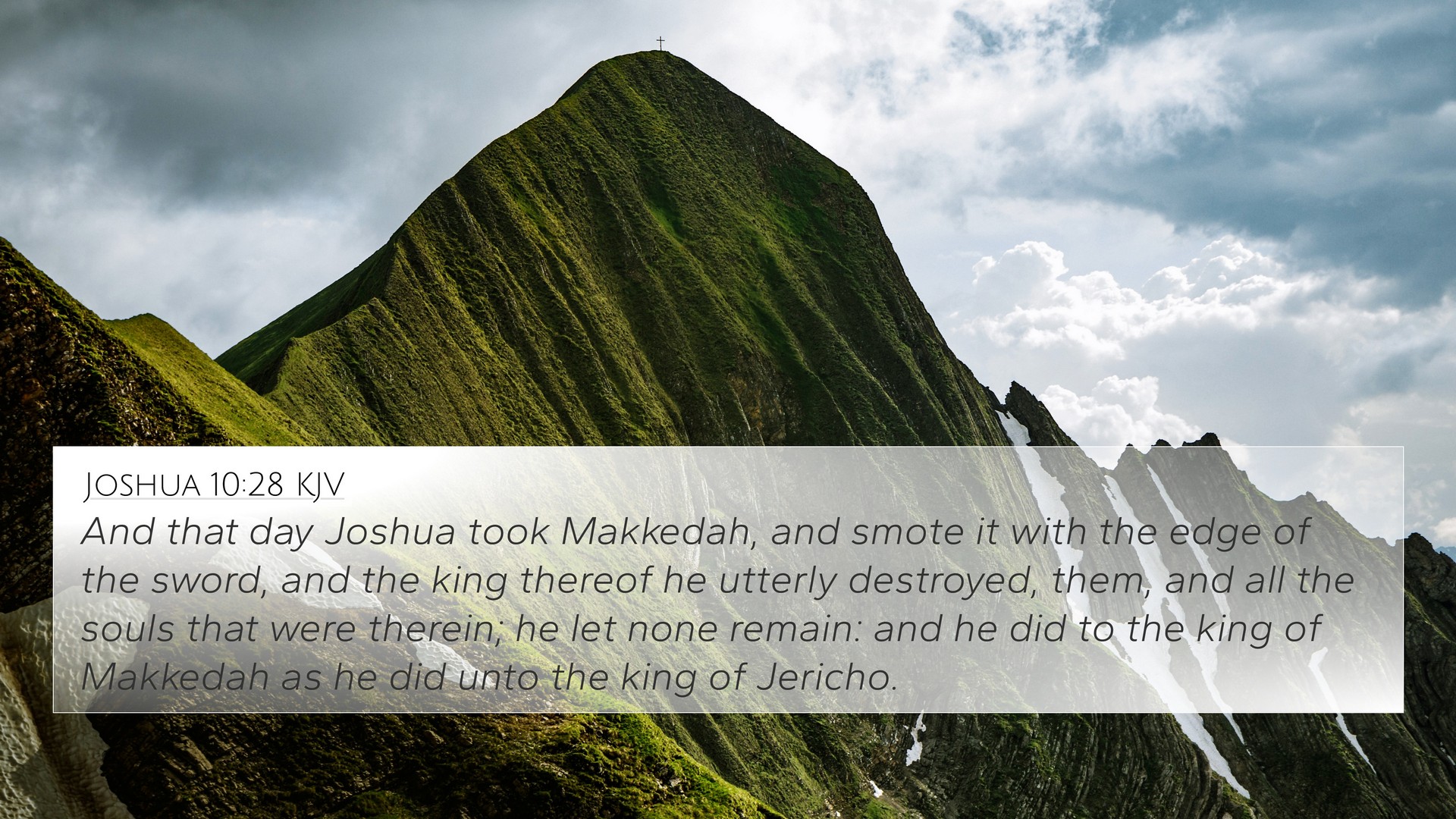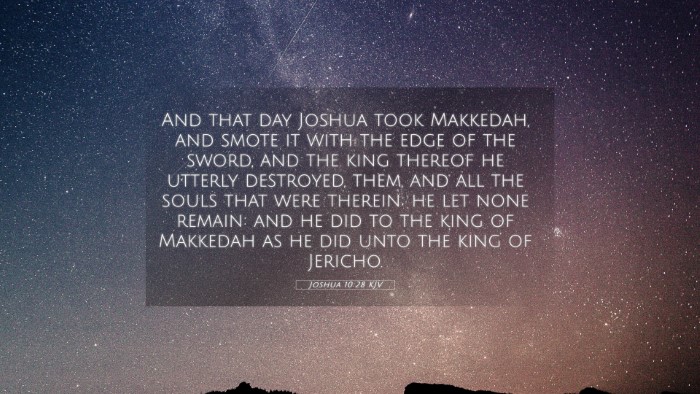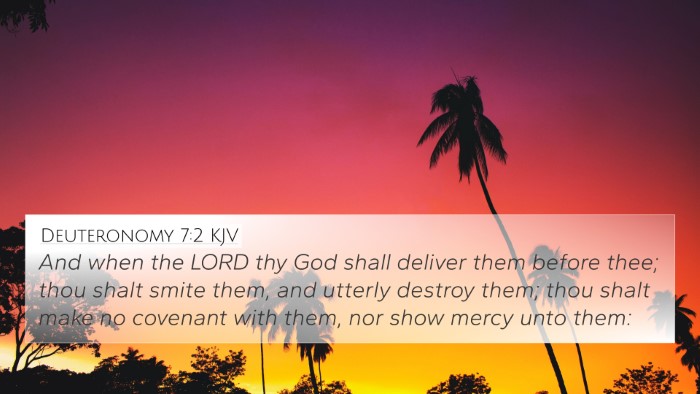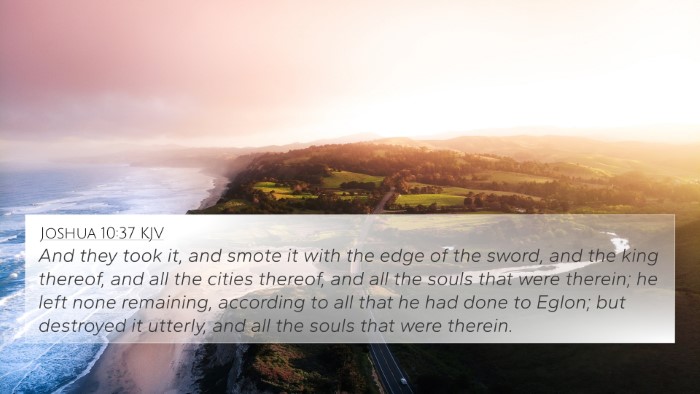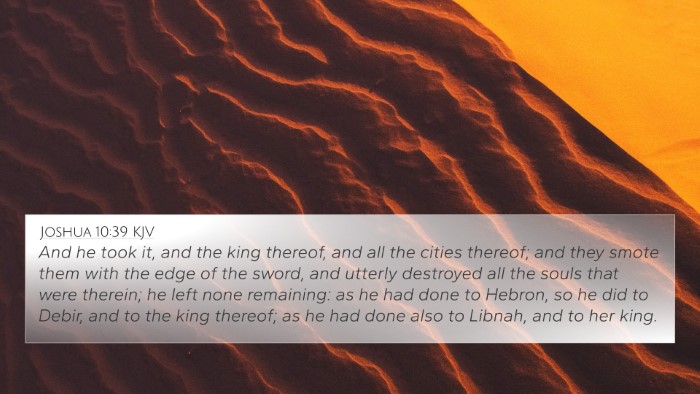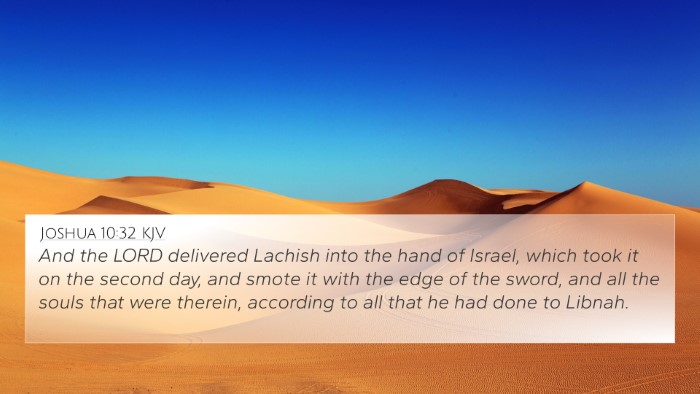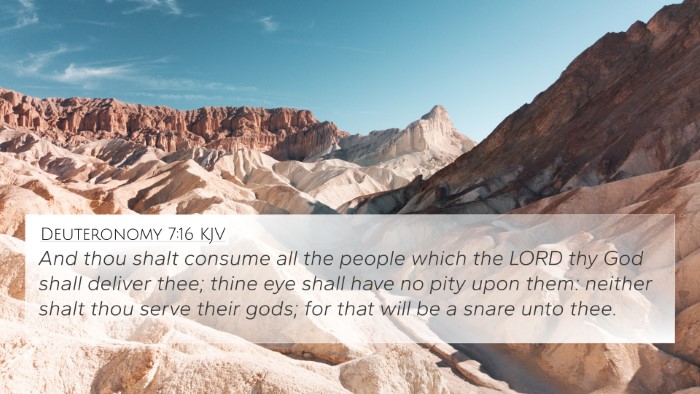Understanding Joshua 10:28
Joshua 10:28 provides a significant moment in the conquest of Canaan, highlighting God's power in aiding Israel to defeat its enemies. This verse states:
"And that day Joshua took Makkedah, and smote it with the edge of the sword, and the king thereof he utterly destroyed, and all the souls that were therein; he let none remain: and he did to the king of Makkedah as he did unto the king of Jericho."
This act signifies the judgment on those who opposed Israel, fulfilled God's promise, and stands as a testament to divine intervention in warfare.
Commentary Insights
The combined insights from various public domain commentaries provide a deeper understanding of this verse:
Matthew Henry's Commentary
Matthew Henry underscores the importance of obeying God's commands in the context of the Israelite conquest. He views Joshua's actions as a fulfillment of God's promises to Israel, emphasizing that all nations opposing God’s people would face a similar fate. The total destruction illustrates the seriousness of God's judgment.
Albert Barnes' Notes
Albert Barnes remarks on the completeness of Joshua's victory at Makkedah, drawing parallels to other victories throughout the biblical narrative. Barnes highlights that God’s help was not merely a one-time event but a continuous theme in the life of Israel, where divine assistance is critical for success against formidable foes.
Adam Clarke's Commentary
Adam Clarke interprets this verse with attention to the cultural context, noting the significance of kingship and territorial ownership at that time. He suggests that these events symbolically represent the triumph of righteousness over wickedness, implying a moral dimension to the conquests and underscoring the seriousness of Israel’s mission in the Promised Land.
Cross-References and Thematic Connections
This verse relates to several others throughout Scripture, enhancing our understanding of its themes:
- Joshua 6:21: The destruction of Jericho echoes the same theme of divine judgment.
- Deuteronomy 20:16-18: God's command for total destruction of certain nations underscores the rationale behind Joshua's actions.
- 1 Samuel 15:3: God's command to Saul reflects similar principles of divine vengeance on enemies.
- Hebrews 11:30-31: The faith of the Israelites during the conquest is a foundational reference to their reliance upon God.
- Romans 15:4: Paul's assertion that the scriptures provide hope is exemplified in the historical context of Joshua's conquests.
- Psalm 44:3: A thematic reminder that victories are granted by God, not by human strength.
- Isaiah 54:17: The promise that no weapon formed against God’s people will prosper reflects the assured victory present in Joshua 10:28.
Thematic Bible Verse Connections
Joshua 10:28 serves as a critical junction linking Old Testament events with New Testament interpretations of victory through faith. The methodical cross-referencing of biblical texts provides insight into God's consistent nature of punishment against wickedness and the manifold ways He supports His people:
- Thematic Connection: The concept of victory in God’s name.
- Inter-Biblical Dialogue: The persistent message of divine judgment against idolatrous nations across different scriptures.
- Comparative Analysis: Comparing Joshua's campaigns with the apostolic mission of establishing the church, pointing to the continued struggle against spiritual wickedness.
How to Use Bible Cross-References
To deepen the understanding of Joshua 10:28, the following tools and methods can be useful:
- Bible Concordance: Use a concordance to find related scriptures.
- Bible Cross-reference Guide: Employ guides that indicate parallel passages.
- Cross-reference Bible Study: Engage in Bible study methods that encourage looking for connections between verses.
- Bible Reference Resources: Utilize comprehensive resources that provide deeper insights into specific verses.
Conclusion
The exploration of Joshua 10:28 reveals profound themes of divine judgment and victory, links to other Bible verses, and constant reminders of God’s faithful interventions in the lives of His people. Understanding these connections reinforces the theological narratives and propels a deeper comprehension of God’s word.
